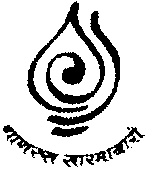
The common perception of karmavad has deeply influenced the Indian mind. Thrown into the mould of fatalism. Its influence has reduced the capacity for effort.
Mahavira propounded the principle of human effort (purushartha). His principle of purushartha was not against the principle of karma. Karma is the result of purushartha. That which is the resultant can also be the one to bring about change. By bringing to light the possibilities of karma ripening before time and transformation of karma, Mahavira made the law of karma second to purushartha. There is also the possibility of curtailing or increasing the duration of karma and also its power of fruition.
The principle of transformation of karma is that with evil practices, merit (punya) can be turned to demerit (papa) and on the other hand with highly moral actions, demerits can be turned into merits. As his karma so the fruits he reaps. Man would have become a puppet at the hands of karma if it were not for the principle of premature ripening of karmas and transformation of karma. Man s independence would have been completely destroyed. Then there would have been no difference between relying on God or karma. But the principles of karma ripening before time (udeerann) and transformation of karmas (sankraman) have freed man from the monopoly of karma by lighting the flame of human effort at the threshold of independence.
Understanding karma in its limited meaning we experience a constriction of purushartha; because of it effort is constrained by that which is predestined (niyati) but its influence is not so great that the value of purushartha is completely negated. If we accept niyati as a Universal law, purushartha is also a universal law. So niyati can draw limits to effort but cannot negate its potency.
William James has written that if everything were predestined then there would be no value for effort. Effort would be meaningless since nothing can happen other than that which has been pre-destined. If there was no freedom to do good or evil in this world then what is the logic of repentance? But again where everything is predestined, one cannot stop anybody from repenting. Till we recognize the responsibility man's action we cannot hold him accountable for any matter.
The anekantic perspective leads 1 to this truth that in this world that which is eternal (shasvat) is the destined. That which is temporary cannot be destined. Existence of reality is eternal. No amount of effort can turn it into non-existence. That which is a combine is temporary and so cannot be predestined. In changing it lies the real meaning of independence and purushartha. Through purushartha, niyati can be changed, the world can be changed, can be made a better place.
All this lies within the limits of purushartha. When such an act is attempted niyati also supports. The existence of reality cannot be made or destroyed. This is beyond the scope of purushartha. When this relationship between purushartha and niyati is understood then one will not feel a conflict between the two but experience a balanced relativity between them. Action is an intrinsic quality of both the sentient and the insentient. The action of the insentient can be intrinsic or motivated by others. The action of the sentient in addition to being intrinsic is also independent. An object moves at a certain pace along a certain route. It does not have the power of will or resolve and so it is not independent.
Man is a sentient being. He is capable of desire, resolve and reflection and so he is capable of independent action. Dan Scott too described man's independence along these lines. He wrote that our independence is due to our resolve. Man, knowing full well the path of dharma walks the path of adharma; this is an example of his independence. The first step of progress is resolve and the second, effort. These two attributes develop greatly in man. That is why man is the prime player in our quest for progress. He has created feelings of joy-sorrow, principles, imagination, logic and sentiments within himself. In the outer world he has created objects of necessities, comforts and luxuries. Man himself has created war and peace.
Darwin established the idea that struggle is necessary for survival. This is eternal and universal. It is the prime cause of conflict among creatures. An echo of this is found in Indian thought also which says, "Jeevo jeevasya jeevanam" (one creature becomes the reason for another's life). Darwin saw the world through the perspective of struggle. There is an element of truth in this also. But it is not the whole truth.
Mahavira saw the world in another perspective He established the idea that the world of beings survives on inter-dependence. If there is the seed of struggle or conflict in man why can there not be the seed of inter-dependence or mutual support? If a being is independent in his struggle then why can he not be independent in his inter-dependence also? The essence of Mahavira's teachings is that man is independent in both struggle and inter-dependence, but to establish peace in the world he should move away from the direction of struggle towards that of interdependence or mutual co-operation. In our lives there are much fewer moments of struggle or conflict and many more moments of interdependence or mutual co-operation. Mahavira did not discount man's independence. He gave the aphorism for a change in direction.
The sutra is: Man should direct his independence towards virtue and turn the negative into a positive.
 Acharya Mahaprajna
Acharya Mahaprajna


